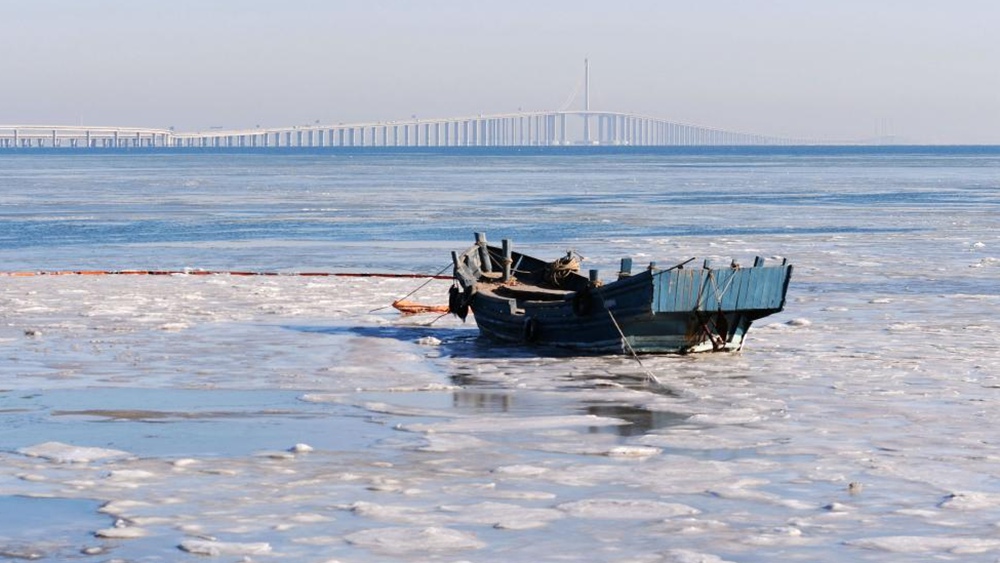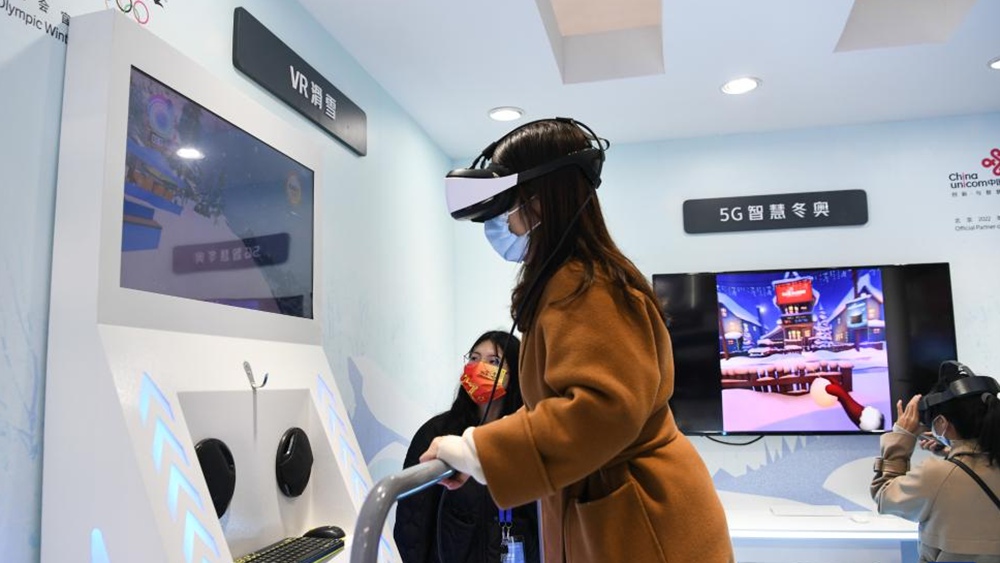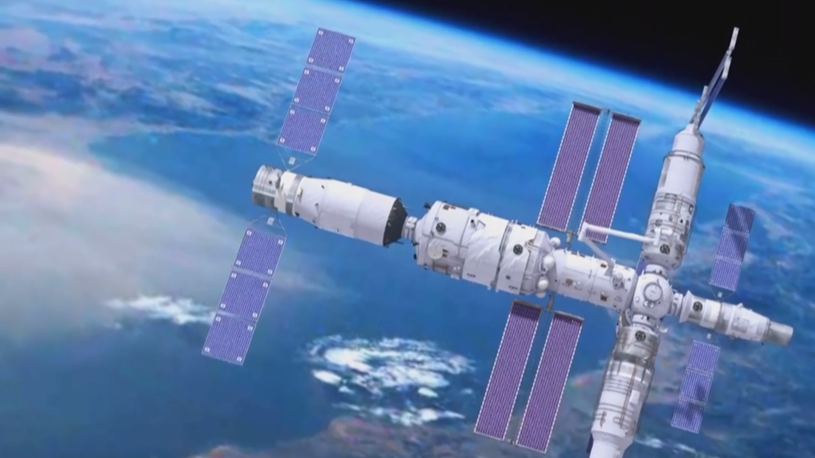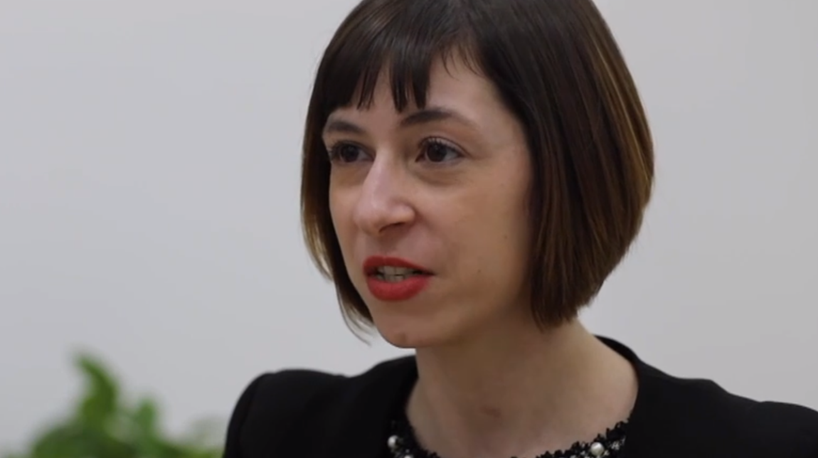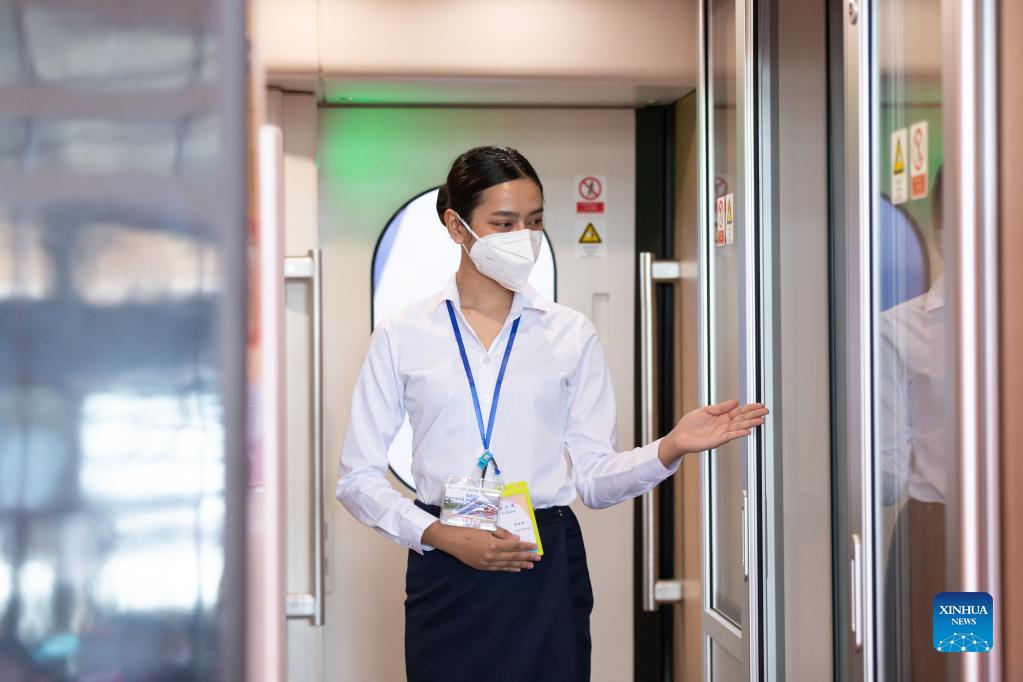
A Lao railway staff member welcomes passengers to board Lane Xang electric multiple unit (EMU) train of the China-Laos Railway at Vientiane Railway Station in Vientiane, Laos, Dec. 3, 2021. (Photo by Kaikeo Saiyasane/Xinhua)
by Xinhua writer Qu Junya
HONG KONG, Dec. 22 (Xinhua) -- In early December, landlocked Laos took a quantum leap toward the nation's dream of becoming a land-linked hub thanks to the inauguration of the China-Laos Railway.
Laos is the only nation in Southeast Asia without direct access to the sea. Lao President Thongloun Sisoulith called the occasion "a proud moment and the dream of all ethnic groups of Laos."
The first electrified railway in Laos was made possible by the China-proposed Belt and Road Initiative (BRI). China's grand plan for a better-connected world was also behind Vietnam's first metro line, which went into commercial operation in capital Hanoi in November.
The Asia-Pacific is home to an extending infrastructure network which was further energized over the past year by new bridges, dams, highways, power lines and railroads, among other BRI projects. Even the COVID-19 pandemic did not slow down work for long. The East Coast Rail Link in Malaysia had almost its entire staff fully vaccinated by October.
Around the world, 141 countries and 32 international organizations, including 19 UN agencies, have participated in the BRI.
CHINESE TECHNICAL STANDARDS
In Bangladesh, the awe-inspiring Padma Bridge nears completion. The rail-road bridge is expected to speed up development and poverty reduction in the southwest of the riverine country, and to complete a key link in the envisaged trans-Asian rail network.
The Padma Bridge has 40 piers sunk into the sandy riverbed. According to Bangladeshi project engineer Dewan Muhammad Abdul Kader, "Every pier and span presented numerous challenges" to the Chinese engineers.
The China-Laos Railway has 75 tunnels in the 422-km Laos section. There -- and in Belt and Road projects elsewhere -- advanced technology and techniques are making short work of geological complexities.
Chinese management and technical standards are extensively applied. VR systems providing a virtual workplace for safety training help protect Malaysian workers, while state-of-the-art equipment like China's tunneling machines boosts progress in building the railway in eastern Malaysia.
Phase-II of the Karakoram Highway was declared one of the best projects in the world this year by U.S. weekly Engineering News-Record in September. Part of the China-Pakistan Economic Corridor, the highway is just one of 46 corridor projects underway or completed. Pakistan sees the corridor as a gamechanger for its national development.
CLEAN AND GREEN
No more coal-fired power plants will be built as part of the BRI, and a large number of hydropower projects are completed, underway or in the pipeline.
Notably, the Sirindhorn Dam in northeastern Thailand combines a floating solar farm with an existing hydropower plant. The Thai government plans to reproduce this model in 15 other locations as part of its climate commitment to a green low-carbon growth.
All Belt and Road projects are constructed in an environment-friendly manner, with a strong imperative to protect the local ecosystem. Construction of the railway created some 110,000 jobs in Laos, but the route remains just as verdant and lush as before the earthmovers arrived.
"After construction, revegetation goes. This is not just high-quality engineering, but also common sense. We want to leave the trackside in the condition we found it," said chief engineer Huang Daiwen. Huang's team has even applied for a patent for "roadbed slope revegetation devices" developed during their work in Laos.
Building hydro dams, of course, takes into account habitat protection for terrestrial wildlife. In the water, dams on the Nam Ou River in Laos have been restocked with native species of fish. Over 2 million fry have been released into the river over past years. And that's not just good for the health of the biosphere, it's good for local people too. Fish restaurants have sprung up, attracting customers from Luang Prabang, dozens of kilometers away. Songkham Yathika, 55, likes boasting about his personal journey from mountain man to fisherman to restaurateur.
LIVELIHOODS AND RISING HOPES
Thanks to the resumed BRI arrangement of chartered freight, in November the flow of pine nuts from Afghanistan to China got moving again, much to the relief of rural people whose only income comes from the nut. The whole pine-nut industrial chain provides at least 40,000 jobs in Khost and Paktia provinces. This trade is a lifeline in Afghanistan amid what might otherwise be a harsh winter of food shortages, economic crises and COVID-19.
To Sri Lankans, the BRI will bring more things than clean water to 450,000 Katana residents and a new outpatient building in commercial capital Colombo.
In September, a children's picture book, A City Rising from the Ocean was published. It tells the story of Colombo Port City, a financial hub growing on land reclaimed from the sea for the past seven years. Port City marina staged Colombo Fashion Week shows in November. A PwC study in November said that, once fully operational, the port city project will add 13.8 billion U.S. dollars to Sri Lanka's economy.
The China-funded 60,000-seat Morodok Techo National Stadium, built in Cambodian capital Phnom Penh, was handed over to Cambodia in September. The country is now ready to host the Southeast Asian Games in 2023.
BROADER CONNECTIVITY
"The stadium serves as another bridge to connect the hearts of the two peoples," said Cambodian government's chief spokesperson Phay Siphan.
In inaugurating the eighth Cambodia-China Friendship Bridge in November, Prime Minister Samdech Techo Hun Sen thanked the BRI for benefiting the Cambodian people and thanked China for COVID-19 vaccine supplies. Those supplies have been instrumental in achieving the country's very high vaccination rates, with 13.56 million people or 84.8 percent of the population being fully vaccinated as of Dec. 15.
Cambodia is also setting up a Sinovac COVID-19 vaccine filling factory. It is among the 29 countries in Asia-Pacific that began Belt and Road partnerships on COVID-19 vaccines cooperation and green development this June.
To return to the biggest BRI event of the year, the China-Laos Railway connecting Kunming in Southwest China to Lao capital Vientiane is a docking project between the BRI and Laos' development strategy.
According to President Thongloun, the shining green line of high tech through primal forest symbolizes the spirit of a community of a shared future and the shared dreams of peoples. Enditem

